I’ve been thinking lately about how we are always under pressure to be “doing something”—organizing events, responding to controversies, making our voices heard.
It’s like we’re constantly in action mode.
But here’s what troubles me: we’ve bought into this modern idea that you always have to be “doing something” to prove you care about an issue.
I see too many of us burning out because we have to respond to every issue immediately, have an opinion on every controversy, and organize a response to every challenge.
But that’s not sustainable, and it’s often ineffective, especially when we are few in number and short on funds.
Some of the greatest victories in Islamic history came not from charging ahead, but from knowing when to step back and regroup.
What the Prophet Taught Us About Strategic Patience

The Hijrah wasn’t a defeat. It was one of the most brilliant strategic moves in history.
The Prophet had spent 13 long years in Mecca, trying to spread Islam. Thirteen years! And after all that time, only about 300 people had accepted Islam out of a population of around 10,000.
He was facing persecution, boycotts, and death threats. Most of us would have either given up or tried to force a breakthrough somehow.
But the Prophet (PBUH) did something different. He stepped back. He recognized that Mecca wasn’t ready, and more importantly, that the small Muslim community wasn’t strong enough to survive if they kept pushing against such overwhelming opposition.
So he made the difficult decision to leave his beloved hometown.
This wasn’t running away—it was repositioning for success. And look what happened.
Within 10 years in Medina, over 124,000 people had joined Islam. The same message that barely moved 300 people in 13 years in Mecca transformed the entire Arabian Peninsula in just a decade from Medina.
What changed?
The Prophet used those years in Medina to build a solid foundation.
He established proper Islamic governance, forged alliances with various tribes, and, most importantly, demonstrated what an Islamic society could look like in practice.
Instead of just talking about Islamic principles, they were living them.
The early Muslim community could have launched a premature attack on Mecca and gotten itself wiped out. But they had the wisdom to wait, to prepare, to build their strength properly.
Salahuddin’s Long Game
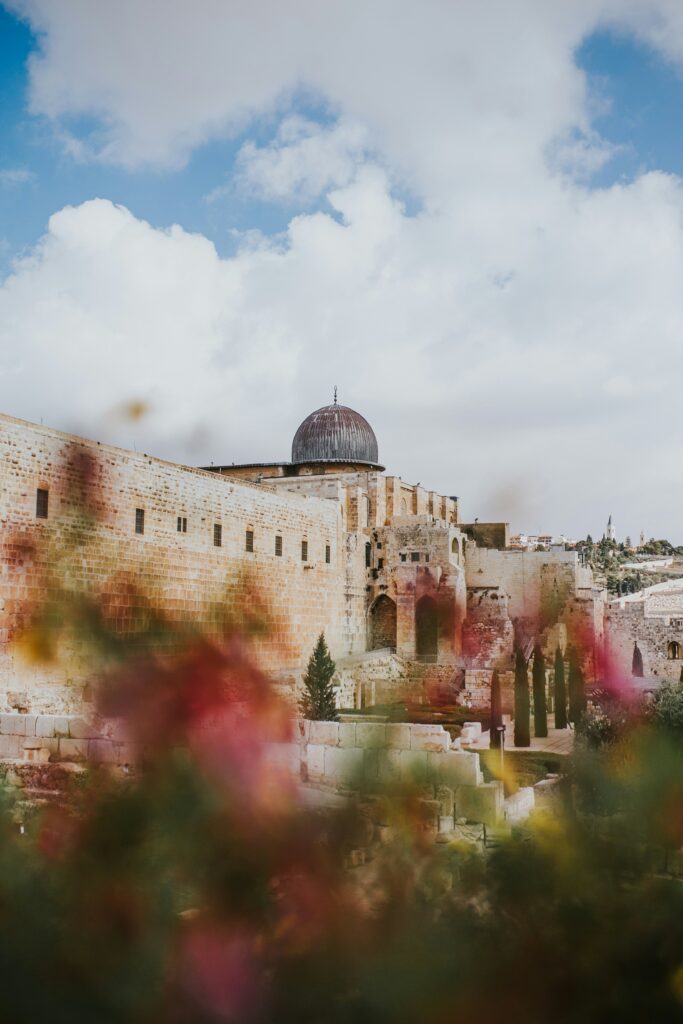
When Salahuddin Al-Ayyubi first came to power, the Muslim world was a mess.
The Crusaders controlled Jerusalem, and Muslim leaders were too busy fighting each other to do anything about it.
Twenty-five European kings had united against the Muslims, and their armies were supposedly the best in the world.
Anyone else might have immediately declared jihad and charged into battle.
But Salahuddin was smarter than that. He knew that a divided, unprepared Muslim force would just get crushed, and that would be the end of any hope for Jerusalem.
So what did he do?
He spent years – years! – doing what looked like “boring” work. He negotiated with rival Muslim leaders. He built economic systems. He strengthened administrative structures. He trained armies properly.
Most importantly, he worked to unite Muslims around a common vision, regardless of their ethnic backgrounds.
People criticized him. They said he was wasting time while Jerusalem remained in Crusader hands.
But Salahuddin understood something crucial: you can’t win a war with enthusiasm alone. You need proper preparation, unified leadership, and the right timing.
When he finally did face the Crusaders at the Battle of Hattin in 1187, he wasn’t just some rebel leader with a ragtag army.
He was the leader of a united, well-prepared Muslim force. And he didn’t just win – he won so decisively that he recaptured Jerusalem and changed the course of history.
Salahuddin could have rushed into battle against the Crusaders before he was ready and lost Jerusalem forever. But he had the wisdom to wait, to prepare, to build his strength properly.
Why We Need This Wisdom Today
We’re a minority community in a secular state, living in one of the most diverse societies in the world.
We have enormous opportunities, but also unique challenges. We’re constantly in reactive mode, always feeling like we need to prove something or defend something.
When was the last time we started something without direction from the top?
When was the last time we started something to address a societal gap?
Our Islamic organizations create hundreds of programs on a daily and weekly basis, but what impact do these have on our society, both individually and collectively?
Should we take a page from the Prophet’s book and sometimes step back to focus on properly laying our foundations?
What an Individual Retreat Looks Like
An important part of laying our foundations is stepping back from the noise and focusing on our own spiritual development.
The Prophet (PBUH) used to retreat to Cave Hira even before his prophethood. He understood the value of solitude and reflection.
In our Instagram/TikTok-driven world, we’ve almost forgotten how important it is to just be quiet with ourselves and with Allah sometimes.
- How is our tadabbur?
- Do we even read any Quran daily?
- How is our nawafil?
- Do we even pray our 5 times daily prayer on time?
- Do we proceed to pray when we hear the call to prayer during a meeting?
- How is our Ma’thurat?
- Do we even take time to read some zikir after our daily prayers?
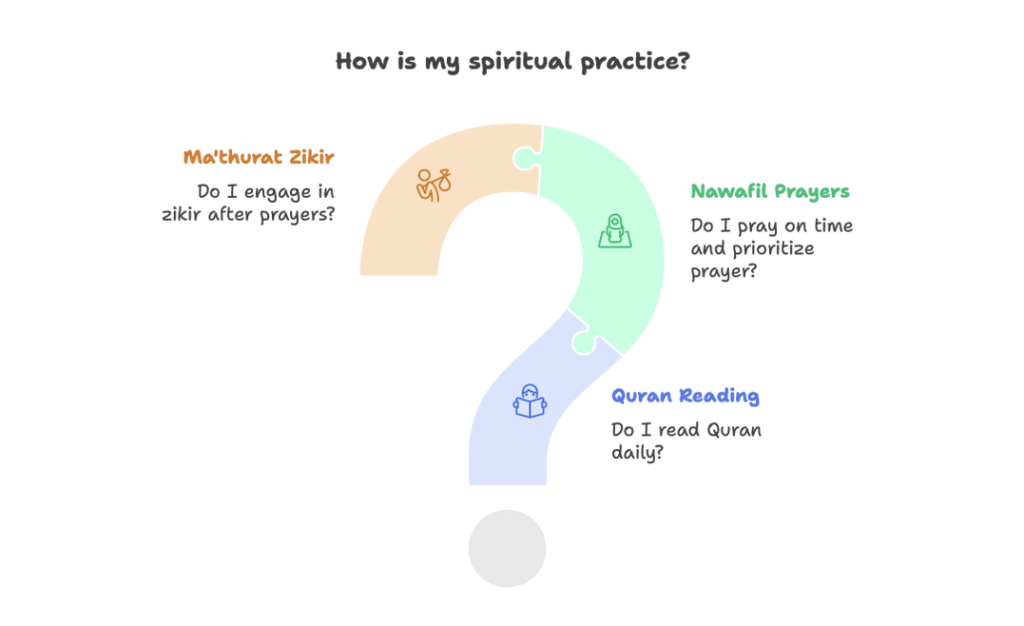
How Our Community Needs to Step Back
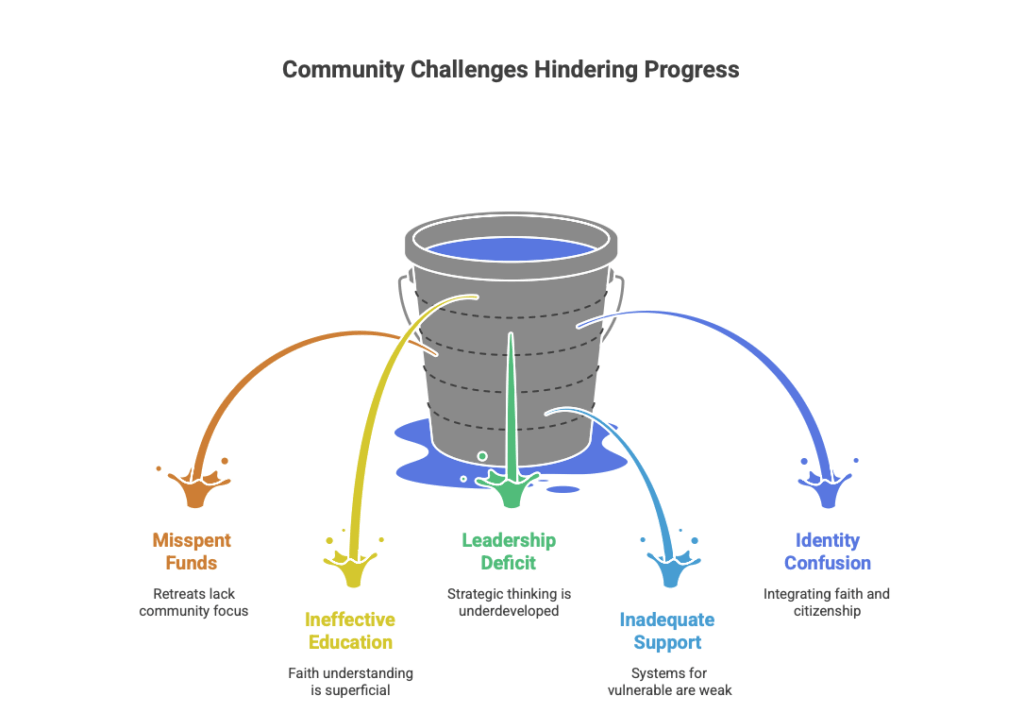
Our community also needs periods of collective stepping back and reassessment.
- Do we really use the community’s money wisely?
- The retreat programs I’ve heard about at some of our Mosques are shocking.
- Holiday out of Singapore, visits to tourist attractions, and only 10% spent on team building programs.
- No discussion on moving our society forward.
- No strategic direction on how to engage the youths in nearby schools, for example.
- What does our community education look like?
- Are we producing Muslims who really understand their faith and can live it confidently in a multicultural society?
- How can we fill the vacuum left by those who are not in our full-time and part-time madrasahs?
- Are we developing leaders who can think strategically and work effectively with people from different backgrounds?
- The Mosque Management Board initiative started many years ago. What is the end goal?
- How many leaders have we developed from this initiative?
- How are our support systems for new Muslims, for young people struggling with their identity, and for elderly members of our community?
- Are we teaching our children how to be proud Muslims AND proud Singaporeans?
- Do our programs help young Muslims navigate questions like “Why can’t I eat at this restaurant?” or “How do I explain hijab to my non-Muslim friends?”
- Are we preparing them to contribute meaningfully to Singapore’s economy, society, and governance while maintaining their Islamic identity?
Knowing When to Engage and When to Build
What I’m suggesting is more strategic thinking about when to engage publicly, when to focus on internal development, and to use community-given money wisely.
Sometimes the most effective response to a controversy isn’t a press release or a public debate.
Sometimes it’s quietly demonstrating through our actions.
Sometimes, focusing on being such good neighbors, colleagues, and citizens naturally changes people’s attitudes.
Salahuddin didn’t ignore the Crusaders while he was building up his strength.
He just chose his battles carefully and prepared thoroughly before engaging. When he finally did fight, he was ready.
What This Looks Like in Practice
So what would a strategic retreat look like for Muslims in Singapore today?
- It may mean our Islamic organizations spend less time churning out program after program and more time on character-building of their members and staff.
- It may mean focusing more on building a strong family support system for school and on effective youth programs that help students build character, rather than constantly worrying about the PSLE benchmark.
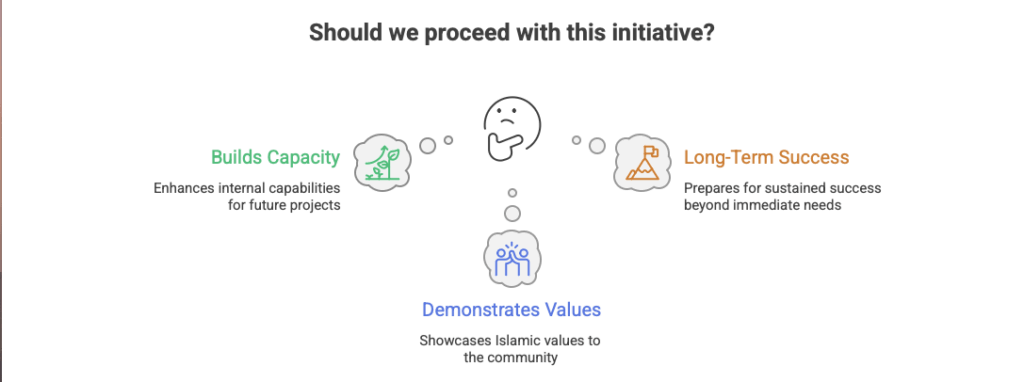
The Path Forward: Wisdom Over Urgency
The Prophet spent years preparing before the conquest of Mecca. Salahuddin spent years building before he reclaimed Jerusalem.
The best Muslim societies in history weren’t built overnight.
We live in a social media age where everything feels urgent, where every issue seems to need an immediate response.
But the most important work—building strong families, educating our children properly, developing our character, creating the right Islamic communities and great Islamic institutions—takes time and patience.
I’m not saying we should never speak up about injustice or avoid difficult conversations.
But we need to be more strategic about when and how we engage, and more committed to the long-term work of building strong, authentic Islamic communities.
The Prophet (PBUH) and Salahuddin both teach us that sometimes the most powerful move is the one that looks like retreat to your critics but is actually strategic repositioning for greater success.
They knew when to fight and when to build, when to engage and when to step back.
Sometimes the bravest thing you can do is resist the pressure for immediate action and focus on doing the foundational work properly. Sometimes the most effective strategy is to step back, assess honestly where you are, and build your strength for the challenges ahead.
That’s the kind of strategic thinking that built the great Islamic civilizations of the past.
And it might just be what we need to develop a strong, confident Muslim community in Singapore today.
So here’s my challenge to our community leaders:
- For the next year, before approving any new program or initiative, ask whether it builds our long-term capacity or keeps us busy.

For individuals:
- Before joining the next Islamic program, take a moment to reflect on whether this initiative, designed for the larger community, will genuinely aid in your personal growth as a Muslim.
- Consider if it will contribute to your character development and spiritual journey.
- Are you looking for knowledge or experiences that will deepen your understanding and practice of Islam?
- It’s essential to prioritize programs that align with your personal goals and values, ensuring that they resonate with your path toward becoming a better version of yourself in faith and character.
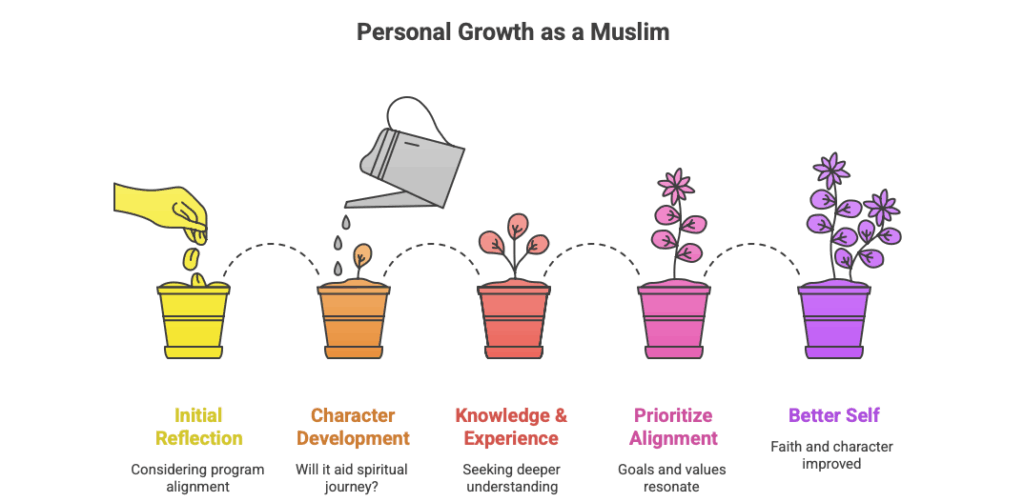
The path forward isn’t about doing less—it’s about doing the right things, at the right time, for the right reasons. And sometimes, the right thing is to step back, lay a solid foundation, and prepare for the greater victories ahead.
